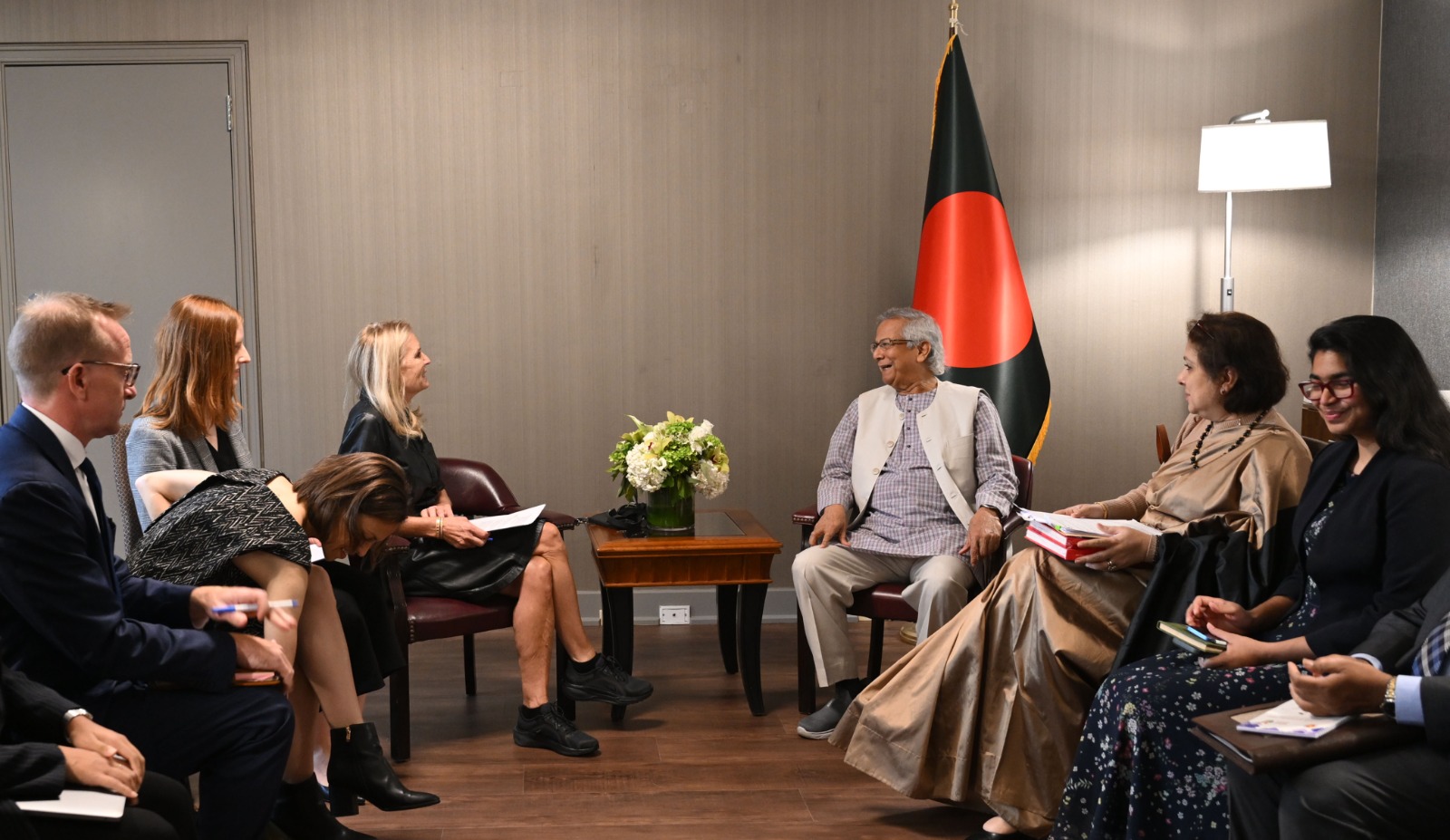
NEW YORK, Sept 29, 2025: Chief Adviser Professor Muhammad Yunus on Monday called on international human rights defenders to continue visiting Bangladesh as the country approaches a “critical time” ahead of the planned election in February.
“The most important thing is that you keep visiting. Every time you visit, forgotten issues are brought to light. Ultimately, you are the voice of the people,” the Chief Adviser said while holding a meeting with a delegation of top human rights activists at his hotel in New York.
The group was led by Kerry Kennedy, President of Robert F. Kennedy Human Rights, and the meeting lasted nearly an hour.
Professor Yunus briefed the delegation on Bangladesh’s preparations for the upcoming election, ongoing reform initiatives in key sectors and steps taken to address human rights concerns.
“We started with a completely broken system,” he said. “We invited the UN Human Rights Office to investigate the killings that took place last year, and their report revealed many things. Since then, we have initiated the process of setting up a UN rights mission—an important step forward.
“We also established a commission to investigate cases of enforced disappearance. People are coming forward with horrific stories—one case is bad enough. Terrible things happened for years. People were kept in Aynaghar (mirror houses), sometimes without knowing why they were there. The commission has not submitted its full report yet, but we are receiving regular updates.”
The Chief Adviser said that 11 commissions were formed to suggest vital reforms in key sectors imcjuding. A national consensus building commussion is currently working on the reccommendations of the reform commissionz. “Political parties that have joined us are also part of this process,” he said, adding he expect the July Charter, which includes major constitutional reforms, would be drafted and signed by political parties by October.
On the upcoming polls, he emphasized: “We want the February election to be free and peaceful—something Bangladesh has never truly had. For years, voter rolls were filled with people who never actually voted. This time, we want to welcome them, especially women, and celebrate their participation. We will launch a major campaign to show people how to vote. Our goal is the highest voter turnout in Bangladesh’s history.”
He cautioned, however, that certain international quarters were trying to obstruct the electoral process. “Some forces are determined to make sure the election never happens. We don’t know who is working for whom. A lot of money is being poured in, with beneficiaries both inside and outside Bangladesh. They are well-prepared—that’s the dangerous part. The next few months are critical,” he said.
Professor Yunus also urged rights groups to speak out against money laundering. “The legal system for recovering stolen money is so difficult. I hope rights groups will raise their voice so banks cannot harbor stolen wealth. This is genuinely people’s money,” he said.
National Citizen Party leader Tasnim Jara, who was present at the meeting, said young people in Bangladesh fought for structural reforms to ensure the country never again falls back into the situation that triggered the July uprising.
The rights defenders stressed the importance of security sector reform to safeguard human rights. “To get as many reforms as possible, pressure should be applied on political parties so they maintain the process once parliament is convened,” said John Sifton, Asia Advocacy Director of Human Rights Watch.
Others present included Catherine Cooper, Staff Attorney, Robert F. Kennedy Human Rights; Mandeep Tiwana, Secretary General, CIVICUS; Matthew Smith, CEO & Founder, Fortify Rights; Sabhanaz Rashid Diya, Executive Director, Tech Global Institute; Carolyn Nash, Asia Advocacy Director, Amnesty International; Mohammad Ashrafuzzaman, Visiting International Scholar, Ohio University; and Jesselina Rana, UN Advisor, CIVICUS.





